Second BPAN disease symposium in France

Second BPAN disease symposium in France
The University of Bordeaux, the Association Autour du BPAN gather to organize the second symposium on BPAN disease in Bordeaux, France. This international symposium will bring together patient organization, scientific and medical experts to share the latest research in the field and to foster networking opportunities on BPAN disease research.
Invited Speakers
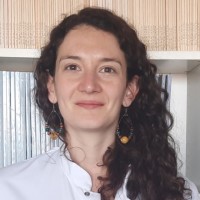
Chloé Angelini
Geneticist, University of Bordeaux, College of Health Science, Bordeaux, France
Dr. Chloé Angelini is a geneticist in the reference center rare diseases - neurogenetics since November 2022, and performs the molecular diagnosis of Neurodegenerations with Brain lron Accumulation, via the panel of the 9 main genes of NBIA or via the interpretation of genomes made on the Auragen platform. His medical thesis and his Master 2 in neuroscience focused on NBIA, with support from the association Autour du BPAN for research work conducted on the characterization of iron accumulation mechanisms.
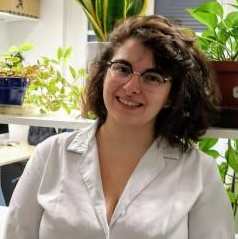
Marion Celle
Laboratory of Biology and Modelling of the Cell – CNRS : UMR5239, INSERM U2110, Université de Lyon, ENS de Lyon, UMS344 Biosciences Lyon Gerland, France
Marion Celle joined Bertrand Mollereau's team as a research engineer following her master's degree in "Genetics and Pathology of the Cell". She is interested in neurodegeneration associated with dysregulation of autophagy. She worked on the establishment and characterization of the Drosophila model of BPAN, a rare neurodegenerative disease and is now seeking to understand its underlying mechanisms.
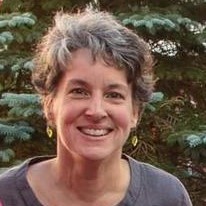
Francine Côté
INSERM U1016, Institut Cochin, Institut National de la Santé et de la Recherche Médicale, Centre National de la Recherche Scientifique, Paris, France
Dr. Francine Côté is a member of Carole Peyssonnaux’s “Iron and Immunity” research team and principal investigator for the study of the physiological functions of peripheral serotonin at Institute Cochin. Dr. Francine Côté is currently PI for a group of 5 persons (2 Ph.D. students, 2 MD/PhD and one engineer). She has recognized expertise in the analysis of the serotonergic system. Dr. Francine Côté generated the peripheral serotonin–deficient mouse model and has been investigating the functions of peripheral serotonin for the past 25 years. Her track record of research in France and Canada is excellent. She provided evidence for a role played by neurofilaments in amyotrophic lateral sclerosis (Cell and Nature) and linked maternal serotonin deficiency to abnormal development and ineffective erythropoiesis (PNAS and Cell Reports). She recently established the link between iron homeostasis and serotonin (bioRxiv). Her current work is dedicated to the study of the role played by serotonin in iron homeostasis. She has filed two patents. Finally, Dr. Francine Côté is also a member of the International Society for Serotonin research, a 450-member international association for scientists interested in all aspects of 5-HT research.
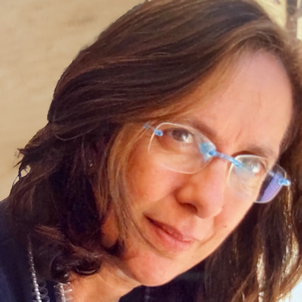
Rosaria Ingrassia
Section of Pharmacology, Department of Molecular and Translational Medicine, University of Brescia Brescia, Italy
Rosaria Ingrassia, after her degree thesis in neuroendocrinology at the Institute of Pharmacology, Medical School, University of Milan, approached studies of protein engineering about the “Structure and function of recombinant human ferritin” at DIBIT, San Raffaele Hospital, Milan, and then on the Molecular aspects of thyroid hormones biosynthesis at the European Molecular Biology Laboratory of Heidelberg, Germany, in the Gene expression Unit of Prof. Riccardo Cortese with Prof. Roberto Di Lauro. She was later involved in studies about the transcriptional regulation by steroid hormones and CAAT-enhancer binding protein (C/EBP) transcription factors of the alpha-1-acid glycoprotein gene in the acute phase of inflammation, at the Institute of Chemistry, School of Medicine, University of Brescia, while visiting scientist at the Dept. Immunology, New York Medical School, Valhalla, N.Y, USA. R. Ingrassia, as assistant professor of Biochemistry at the University of Brescia, studied the role of the autosomic dominant mutations of the human ferritin gene, light chain, for hereditary neuroferritinopathy. She was later involved, at the Institute of Pharmacology of the same University, in molecular studies of neurodegenerative diseases, focused on the role of iron metabolism in the pathogenesis of the post-ischemic neurodegeneration with epigenetic activation of NF-kB/RelA in both in vitro and in vivo models of brain ischemia; on the role of the ferrous iron transporter DMT1 in the neurodegenerative model of Parkinson's disease, the c-rel knockout mice and, then, she developed the study about the Neurodegeneration with Brain Iron Accumulation, type 5 (NBIA5/BPAN) in human fibroblasts of BPAN affected patients, thanks also to the collaboration with the Telethon Network of Genetics Biobank of movement disorders, directed by Dr. Barbara Garavaglia.
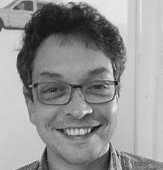
Gaetan Lesca
Institut NeuroMyoGene PNMG, CNRS UMR5310, INSERM U1217, Université Claude Bernard Lyon 1, Lyon, France
Gaëtan Lesca is a professor of medical genetics (PU-PH) at the Hospices Civils de Lyon and at the Claude Bernard Lyon 1 University. Diploma of Specialized Studies in medical genetics, with an orientation in the field of neurology and neuropediatrics, he was a university hospital assistant then MCU-PH in the medical genetics department of the HCL. For more than 20 years, he has been developing genetic tests for the diagnosis of neurodevelopmental disorders and in particular monogenic epilepsies. He also provides consultations and will take over the coordination of the competence center for rare genetic diseases of the nervous system at the Hospices Civils de Lyon. In the field of research, Prof. Lesca has contributed to the identification of genes involved in epilepsy and other neurodevelopmental disorders and is a member of the "metabolism and neuronal development" research team (Dr. Julien Courchet), Laboratoire Physiopathologie et Génétique du Neurone et du Muscle, Institut Neuromyogène, CNRS UMR 5261 -INSERM U1315, Université Claude Bernard Lyon 1.
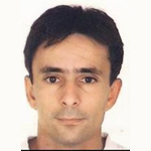
Jean-Paul Lasserre
MCU, University of Bordeaux, College of Health Science, Translational research on neurogenetic diseases (NRGEN), INCIA, Bordeaux, France
As a graduate student at Bordeaux University, Dr Jean-Paul Lasserre showed the existence of a second DNA polymerase in yeast mitochondria (using affinity chromatography). During several post-doctoral studies in Paris and Luxembourg, he became an expert in proteomics and developed new methodologies for whole cell protein complexes isolation, which he exploited to measure the effects of pesticides and PCB on human cell. Ten years ago, he was recruited as a permanent Assistant Professor at the faculty of Pharmacy of Bordeaux University, and affiliated to the research group at the Institute of Cellular Genetics and Biochemistry (IBGC), a worldwide-recognized research center on mitochondria often referred to as the French School of Bioenergetics. In this group, his research activities were totally dedicated to the study of mitochondrial disease using yeast as a model system with a strong focus on the Barth Syndrome. he wrote a comprehensive review on this topic that was published in Disease Models and Mechanisms and two articles published in Microbial Cell and Disease Models and Mechanisms. he supervised a PhD student (De Taffin De Tilques Maxence), supported by the French Ministry of Education and Research, whose work was entirely dedicated to the study of the Barth Syndrome and the search of potential therapeutic pathways (2014-2017). In 2018, he changed and he joined the INSERM U1211 team (MRGM : Rare Disease, Genetic and Metabolism). He has been recruited as expert of yeast-based pharmacological studies for develop the yeast model for mitochondrial disease as BPAN. Since 2019, with the support of Autour du BPAN association, he continue to work on the BPAN pathologie and recently (since 2022), he followed the clinicians and they have joined the INCIA (Institut de Neurosciences Cognitives et Intégratives d'Aquitaine).
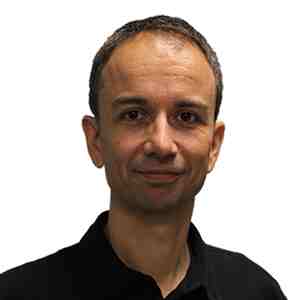
Bertand Mollereau
Laboratory of Biology and Modelling of the Cell – CNRS : UMR5239, INSERM U2110, Université de Lyon, ENS de Lyon, UMS344 Biosciences Lyon Gerland, France
Prof Bertrand Mollereau is the head of the “Regulated Cell Death and Genetics of Neurodegeneration” at the Laboratory of Biology and Modelling of the Cell of the ENS of Lyon. In 2017, he was nominated senior member of the Institut Universitaire de France, a prestigious recognition of his scientific career. B. Mollereau is an international expert on neurodegeneration, autophagy, ER stress and Parkinson’s disease, topics on which he published more than 60 publications. In 2019, his group initiated a research project on BPAN using Drosophila as model to study the importance of autophagy and ER stress.
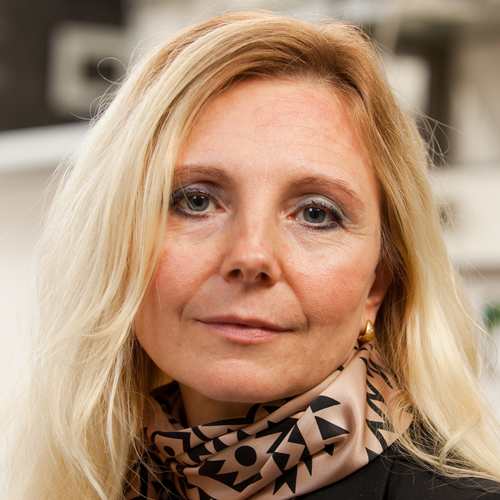
Tassula Proikas-Cezanne
Department of Molecular Biology, Interfaculty Institute for Cell Biology, University of Tuebingen, Germany
Prof. Dr. Proikas-Cezanne is a German molecular biologist and an internationally recognized expert in autophagy research. She discovered the human WIPI genes, including the WDR45 gene, which encodes the autophagy protein WIPI4, and mutations of which are responsible for BPAN.
Prof. Dr. Proikas-Cezanne studied biology at the universities of Frankfurt and Hamburg and conducted her doctoral studies at the Max Planck Institute, Max Delbrück Laboratories in Cologne, Germany. After postdoctoral studies at the Marie Curie Research Institute in Oxted, UK and Temple University in Philadelphia, PA, USA, Proikas-Cezanne established her independent research on autophagy at the Eberhard Karls University in Tübingen, Germany. In recent years, Prof. Dr. Proikas-Cezanne expanded her research program on autophagy to understand the underlying mechanisms of BPAN. In addition to research, she teaches master's and bachelor's students, is elected Equal Opportunities Officer for Biology at the Eberhard Karls University Tübingen and active as founder and spokesperson for the German Autophagy Network under the umbrella of the Society for Biochemistry and Molecular Biology (GBM).
Prof. Dr. Proikas-Cezanne studied biology at the universities of Frankfurt and Hamburg and conducted her doctoral studies at the Max Planck Institute, Max Delbrück Laboratories in Cologne, Germany. After postdoctoral studies at the Marie Curie Research Institute in Oxted, UK and Temple University in Philadelphia, PA, USA, Proikas-Cezanne established her independent research on autophagy at the Eberhard Karls University in Tübingen, Germany. In recent years, Prof. Dr. Proikas-Cezanne expanded her research program on autophagy to understand the underlying mechanisms of BPAN. In addition to research, she teaches master's and bachelor's students, is elected Equal Opportunities Officer for Biology at the Eberhard Karls University Tübingen and active as founder and spokesperson for the German Autophagy Network under the umbrella of the Society for Biochemistry and Molecular Biology (GBM).
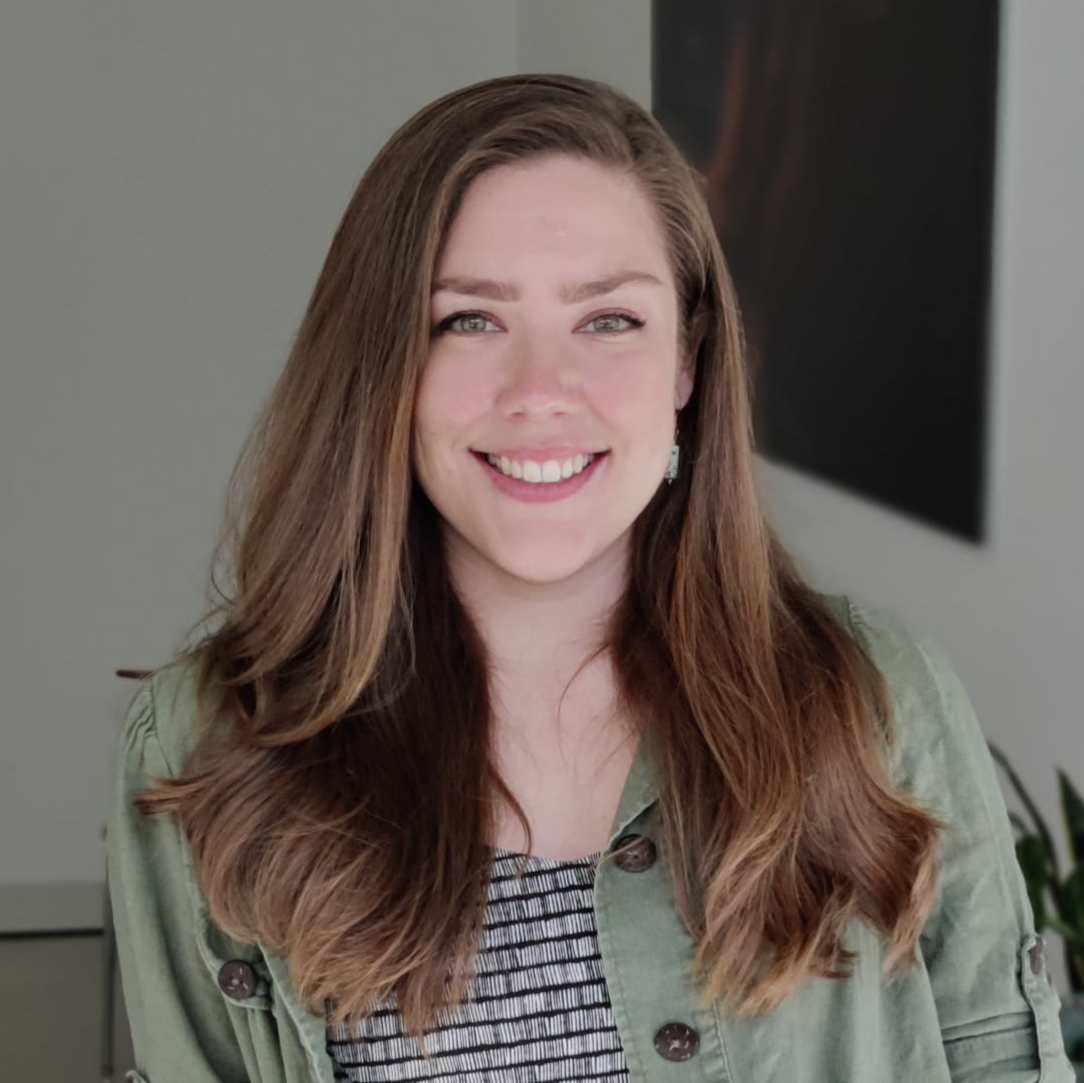
Rachel Wise
Metabolic Biochemistry, Biomedical Center, Ludwig Maximilian University Munich, Munich, Germany
Dr Rachel Wise a determined and passionate neuroscientist dedicated to defining the molecular mechanisms driving pathology in “Neurodegeneration with Brain Iron Accumulation” (NBIA) disorders, in particular Beta propeller protein-associated neurodegeneration (BPAN). As a postdoctoral fellow in the laboratory of Lena F. Burbulla, Leader of the Translational Disease Modeling group in the German Center for Neurodegenerative Diseases (DZNE) Munich, she models BPAN pathophysiology using patient-derived induced pluripotent stem cells (iPSCs) differentiated into both midbrain dopaminergic neurons -one of the most prominently-affected neuronal subsets, and microglia - the unique brain-resident macrophages. Her work integrates unbiased multi-omics approaches with targeted biochemical assays to delineate both cell autonomous mechanisms driving dopaminergic neuron vulnerability, as well as the non-cell autonomous mechanisms contributing to the unique neuropathology seen in BPAN. She focusses on cellular processes which are uniquely important to midbrain dopaminergic neurons, namely, iron homeostasis, dopamine metabolism, neuromelanin formation, and oxidative stress. My long-term career goals are to join the NBIA community and help propel scientific progress through the development and optimization of disease models, expansion of research tools and datasets, and ultimately the discovery and pursuit of novel avenues for therapeutic intervention.
Organizing Committee
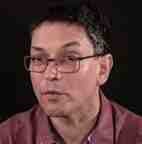
Chloé Angelini
Geneticist, University of Bordeaux, College of Health Science
Member of the scientific council of the association Autour du BPAN, Professor Gaëtan LESCA is a geneticist at the Hospices Civils de Lyon and professor of genetics at the Lyon Est faculty (Université Claude Bernard Lyon 1). It is involved in the genetic diagnosis of neurodevelopment disorders and in particular epilepsies, brain malformations and intellectual disabilities. He also carries out research activities at the CHU and within the NeuroMyoGène Institute. He has contributed to the identification of several genes involved in these diseases and to numerous works on the characterization of genotype-phenotype correlations.

Isabelle Coupry
Researcher, CR / Inserm, Translational research on neurogenetic diseases (NRGEN), INCIA
cPr. Bertrand Mollereau is the head of the Apoptosis and Neurogenetics group at the Laboratory of Molecular Biology of the Cell at Ecole Normale Supérieure de Lyon (ENSL). In 1997, Dr. Mollereau received his Ph.D. on Immunology from the University of Paris XI in the laboratory of Anna Senik. He then conducted post-doctoral research with Dr. Claude Desplan in the Laboratory of Molecular Genetics at Rockefeller and New York Universities. In 2001, Dr. Mollereau was appointed Research Assistant Professor in the Strang Laboratory of Apoptosis and Cancer Biology under Dr. Hermann Steller at the Rockefeller University, USA. There, he obtained NIH grant support and headed a junior research group to study photoreceptor development and apoptosis in Drosophila. Dr. Mollereau joined the faculty as professor at the Ecole Normale Supérieure de Lyon in autumn 2006. In 2008, his group was awarded the ATIP (CNRS) and Fondation pour la Recherche Medical Equipe programmes. His group is interested in understanding the mechanism of cell death and pathophysiology of neurodegenerative diseases using Drosophila and mouse models.
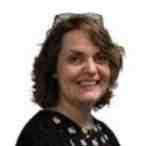
Christelle Durand
Research Engineer, University of Bordeaux, College of Health Science,
Translational research on neurogenetic diseases (NRGEN), INCIA
Translational research on neurogenetic diseases (NRGEN), INCIA
Ludivine Walter is an Assistant Professor at Claude Bernard Lyon 1 University. She received her Ph. D in Physiology, Nutrition and Physiopathology from Paris VII University under the mentorship of Pr Eric Fontaine. Immediately following her Ph. D, she completed a post doctoral training in Pr. Gyorgy Hajnoczky's lab at the Jefferson Medical School inm Philadelphia, USA. Subsequently, she started using model organism in Pr Sylvia Lee's lab at Cornell University, Ithaca, USA, where she was awarded a United Mitochondrial Disease Fellowship to work on mitochondria in aging processes in the nematode C. elegans. An ERG Marie Curie fellowship allowed to pursue her research in Hugo Aguilaniu's lab. She joined Bertrand Mollereau's lab in 2016 to study the role of the mitochondria in cell death and physiopathology. She teaches undergraduate and graduate classes in molecular biology and genetics.

Patricia Fergelot
University of Bordeaux, College of Health Science | CHU Bordeaux · Developmental Abnormalities and Malformative Syndromes Reference Centre, MD, PhD
Ludivine Walter is an Assistant Professor at Claude Bernard Lyon 1 University. She received her Ph. D in Physiology, Nutrition and Physiopathology from Paris VII University under the mentorship of Pr Eric Fontaine. Immediately following her Ph. D, she completed a post doctoral training in Pr. Gyorgy Hajnoczky's lab at the Jefferson Medical School inm Philadelphia, USA. Subsequently, she started using model organism in Pr Sylvia Lee's lab at Cornell University, Ithaca, USA, where she was awarded a United Mitochondrial Disease Fellowship to work on mitochondria in aging processes in the nematode C. elegans. An ERG Marie Curie fellowship allowed to pursue her research in Hugo Aguilaniu's lab. She joined Bertrand Mollereau's lab in 2016 to study the role of the mitochondria in cell death and physiopathology. She teaches undergraduate and graduate classes in molecular biology and genetics.

Cyril Goizet
Team Leader, PU-PH / University of Bordeaux, College of Health Science, Translational research on neurogenetic diseases (NRGEN), INCIA
Ludivine Walter is an Assistant Professor at Claude Bernard Lyon 1 University. She received her Ph. D in Physiology, Nutrition and Physiopathology from Paris VII University under the mentorship of Pr Eric Fontaine. Immediately following her Ph. D, she completed a post doctoral training in Pr. Gyorgy Hajnoczky's lab at the Jefferson Medical School inm Philadelphia, USA. Subsequently, she started using model organism in Pr Sylvia Lee's lab at Cornell University, Ithaca, USA, where she was awarded a United Mitochondrial Disease Fellowship to work on mitochondria in aging processes in the nematode C. elegans. An ERG Marie Curie fellowship allowed to pursue her research in Hugo Aguilaniu's lab. She joined Bertrand Mollereau's lab in 2016 to study the role of the mitochondria in cell death and physiopathology. She teaches undergraduate and graduate classes in molecular biology and genetics.

Jean-Paul Lasserre
MCU, University of Bordeaux, College of Health Science, Translational research on neurogenetic diseases (NRGEN), INCIA
Ludivine Walter is an Assistant Professor at Claude Bernard Lyon 1 University. She received her Ph. D in Physiology, Nutrition and Physiopathology from Paris VII University under the mentorship of Pr Eric Fontaine. Immediately following her Ph. D, she completed a post doctoral training in Pr. Gyorgy Hajnoczky's lab at the Jefferson Medical School inm Philadelphia, USA. Subsequently, she started using model organism in Pr Sylvia Lee's lab at Cornell University, Ithaca, USA, where she was awarded a United Mitochondrial Disease Fellowship to work on mitochondria in aging processes in the nematode C. elegans. An ERG Marie Curie fellowship allowed to pursue her research in Hugo Aguilaniu's lab. She joined Bertrand Mollereau's lab in 2016 to study the role of the mitochondria in cell death and physiopathology. She teaches undergraduate and graduate classes in molecular biology and genetics.

Giovanni Stevanin
Team Leader DR / Inserm / Translational research on neurogenetic diseases (NRGEN) , INCIA
Ludivine Walter is an Assistant Professor at Claude Bernard Lyon 1 University. She received her Ph. D in Physiology, Nutrition and Physiopathology from Paris VII University under the mentorship of Pr Eric Fontaine. Immediately following her Ph. D, she completed a post doctoral training in Pr. Gyorgy Hajnoczky's lab at the Jefferson Medical School inm Philadelphia, USA. Subsequently, she started using model organism in Pr Sylvia Lee's lab at Cornell University, Ithaca, USA, where she was awarded a United Mitochondrial Disease Fellowship to work on mitochondria in aging processes in the nematode C. elegans. An ERG Marie Curie fellowship allowed to pursue her research in Hugo Aguilaniu's lab. She joined Bertrand Mollereau's lab in 2016 to study the role of the mitochondria in cell death and physiopathology. She teaches undergraduate and graduate classes in molecular biology and genetics.
Program
Day One, Clinical and scientific program (in English)
Friday, May 12th, 2023
CHECK-IN
Check-in and coffee
9:00am - 9:30am

Isabelle Coste (Chair-Woman of the association Autour du BPAN "Around BPAN")
Introduction
9:30am - 9:45am

Tassula Proikas-Cezanne (Department of Molecular Biology, Interfaculty Institute for Cell Biology, University of Tuebingen, Germany)
Human WIPI β-propellers in autophagy, health and disease
9:45am - 10:30am
Understanding the fundamentals of Supplemental Security Income (SSI), Social Security Disability Insurance (SSDI), Childhood Disabled Beneficiary Benefits (CDB), Medi-Cal, Medicare, Regional Center, and In Home Supportive Services (IHSS) is the critical first step for the professional to know how to properly plan for persons with disabilities and how to manage their personal and financial care during their lifetimes. This is the foundational program to all other programs. It is a must see for the beginner and an excellent refresher for the experienced professional.

Olivier Vincent (IIB, Madrid, Spain)
Objet de la presentation
11:45am - 12:15am
Understanding the fundamentals of Supplemental Security Income (SSI), Social Security Disability Insurance (SSDI), Childhood Disabled Beneficiary Benefits (CDB), Medi-Cal, Medicare, Regional Center, and In Home Supportive Services (IHSS) is the critical first step for the professional to know how to properly plan for persons with disabilities and how to manage their personal and financial care during their lifetimes. This is the foundational program to all other programs. It is a must see for the beginner and an excellent refresher for the experienced professional.
Coffee Break
10:30am - 11:00am

Marion Celle (Laboratory of Biology and Modelling of the Cell – CNRS : UMR5239, INSERM U2110, Université de Lyon, ENS de Lyon, UMS344 Biosciences Lyon Gerland - France)
Establishing a Drosophila model of BPAN disease
11:00am - 11:45am
Understanding the fundamentals of Supplemental Security Income (SSI), Social Security Disability Insurance (SSDI), Childhood Disabled Beneficiary Benefits (CDB), Medi-Cal, Medicare, Regional Center, and In Home Supportive Services (IHSS) is the critical first step for the professional to know how to properly plan for persons with disabilities and how to manage their personal and financial care during their lifetimes. This is the foundational program to all other programs. It is a must see for the beginner and an excellent refresher for the experienced professional.

Francine Coté (INSERM U1016, Institut Cochin, Institut National de la Santé et de la Recherche Médicale, Centre National de la Recherche Scientifique, Paris, France)
Study of the role of serotonin in the control of ferritinophagy and its therapeutic application to BPAN
11:45am - 12:15pm
The WDR45 gene is localized on the X-chromosome and different variants in this gene are causative for the neurodegenerative disorder BPAN (ß-propeller protein associated neurodegeneration). WDR45/WIPI4 is a WD-repeat β-propeller protein that belongs to the WIPI (WD repeat domain, phosphoinositide interacting) family. The precise cellular function of WDR45 is still largely unknown, but deletions or variants in WDR45 can lead to macroautophagy/autophagy defects, malfunctioning mitochondria, endoplasmic reticulum stress and unbalanced iron homeostasis, suggesting that this protein functions in one or more pathways regulating directly or indirectly those processes. Our laboratory is studying the molecular functions of WDR45, particularly in autophagy and mitochondrial homeostasis, using a variety of cellular systems.
Lunch Break
12:30pm – 2:30pm
12 Grand Maurian, 33000 Bordeaux

Autour du BPAN
Introduction
2:15pm - 2:30pm

Rosaria Ingrassia (Section of Pharmacology, Department of Molecular and Translational Medicine, University of Brescia Brescia, Italy)
Ferrous iron is up-regulated and starvation-dependent in fibroblasts of patients with Beta Propeller Protein-Associated Neurodegeneration (BPAN)
2:30pm – 3:15pm
Understanding the fundamentals of Supplemental Security Income (SSI), Social Security Disability Insurance (SSDI), Childhood Disabled Beneficiary Benefits (CDB), Medi-Cal, Medicare, Regional Center, and In Home Supportive Services (IHSS) is the critical first step for the professional to know how to properly plan for persons with disabilities and how to manage their personal and financial care during their lifetimes. This is the foundational program to all other programs. It is a must see for the beginner and an excellent refresher for the experienced professional.

Rachel Wise (Metabolic Biochemistry, Biomedical Center, Ludwig Maximilian University Munich, Munich, Germany)
Vicious cycle of iron dyshomeostasis and dopamine oxidation in iPSC-derived dopaminergic neurons from BPAN patients
3:15pm – 4:00pm
Understanding the fundamentals of Supplemental Security Income (SSI), Social Security Disability Insurance (SSDI), Childhood Disabled Beneficiary Benefits (CDB), Medi-Cal, Medicare, Regional Center, and In Home Supportive Services (IHSS) is the critical first step for the professional to know how to properly plan for persons with disabilities and how to manage their personal and financial care during their lifetimes. This is the foundational program to all other programs. It is a must see for the beginner and an excellent refresher for the experienced professional.
Coffee Break
4:00pm – 4:30pm

Jean-Paul Lasserre (University of Bordeaux, INCIA, CNRS - UMR 5287, Bordeaux, France)
The yeast Saccharomyces cerevisiae used as a tool and model in the pathology of BPAN
4:30pm – 5:15pm
Understanding the fundamentals of Supplemental Security Income (SSI), Social Security Disability Insurance (SSDI), Childhood Disabled Beneficiary Benefits (CDB), Medi-Cal, Medicare, Regional Center, and In Home Supportive Services (IHSS) is the critical first step for the professional to know how to properly plan for persons with disabilities and how to manage their personal and financial care during their lifetimes. This is the foundational program to all other programs. It is a must see for the beginner and an excellent refresher for the experienced professional.
Synthesis
Objet de la presentation
5:15pm
Understanding the fundamentals of Supplemental Security Income (SSI), Social Security Disability Insurance (SSDI), Childhood Disabled Beneficiary Benefits (CDB), Medi-Cal, Medicare, Regional Center, and In Home Supportive Services (IHSS) is the critical first step for the professional to know how to properly plan for persons with disabilities and how to manage their personal and financial care during their lifetimes. This is the foundational program to all other programs. It is a must see for the beginner and an excellent refresher for the experienced professional.

To Be Announced
Objet de la presentation
5:45pm – 6:15pm
Understanding the fundamentals of Supplemental Security Income (SSI), Social Security Disability Insurance (SSDI), Childhood Disabled Beneficiary Benefits (CDB), Medi-Cal, Medicare, Regional Center, and In Home Supportive Services (IHSS) is the critical first step for the professional to know how to properly plan for persons with disabilities and how to manage their personal and financial care during their lifetimes. This is the foundational program to all other programs. It is a must see for the beginner and an excellent refresher for the experienced professional.
End of first day
06:00pm
Gala Evening
Wine tasting at 3 Montbazon
3 rue Montbazon 33000 Bordeaux
General discussion
Presentation of the Bordeaux vineyard by Nicolas Tissier (Sommelier)
7:30pm
Understanding the fundamentals of Supplemental Security Income (SSI), Social Security Disability Insurance (SSDI), Childhood Disabled Beneficiary Benefits (CDB), Medi-Cal, Medicare, Regional Center, and In Home Supportive Services (IHSS) is the critical first step for the professional to know how to properly plan for persons with disabilities and how to manage their personal and financial care during their lifetimes. This is the foundational program to all other programs. It is a must see for the beginner and an excellent refresher for the experienced professional.
Gala Dinner at 3 Montbazon
3 rue Montbazon 33000 Bordeaux
Day Two, Families program (in French)g
Saturday, May 13th, 2023
CHECK-IN
Check-in and Coffee
8:15am - 8:30am

Isabelle Coste (Chair-Woman of the association Autour du BPAN "Around BPAN")
Introduction
8:45am - 8:55am
Understanding the fundamentals of Supplemental Security Income (SSI), Social Security Disability Insurance (SSDI), Childhood Disabled Beneficiary Benefits (CDB), Medi-Cal, Medicare, Regional Center, and In Home Supportive Services (IHSS) is the critical first step for the professional to know how to properly plan for persons with disabilities and how to manage their personal and financial care during their lifetimes. This is the foundational program to all other programs. It is a must see for the beginner and an excellent refresher for the experienced professional.
Research (in French)

Bertrand Mollereau (Laboratory of Biology and Modelling of the Cell – CNRS : UMR5239, INSERM U2110, Université de Lyon, ENS de Lyon, UMS344 Biosciences Lyon Gerland - France)
Is the restoration of autophagy a promising therapeutic strategy for BPAN disease?
8:55am - 9:20am
Understanding the fundamentals of Supplemental Security Income (SSI), Social Security Disability Insurance (SSDI), Childhood Disabled Beneficiary Benefits (CDB), Medi-Cal, Medicare, Regional Center, and In Home Supportive Services (IHSS) is the critical first step for the professional to know how to properly plan for persons with disabilities and how to manage their personal and financial care during their lifetimes. This is the foundational program to all other programs. It is a must see for the beginner and an excellent refresher for the experienced professional.

Francine Coté (INSERM U1016, Institut Cochin, Institut National de la Santé et de la Recherche Médicale, Centre National de la Recherche Scientifique, Paris, France)
Study of the role of serotonin in iron management: A new therapeutic approach in the context of BPAN
9:20am - 9:45am
Understanding the fundamentals of Supplemental Security Income (SSI), Social Security Disability Insurance (SSDI), Childhood Disabled Beneficiary Benefits (CDB), Medi-Cal, Medicare, Regional Center, and In Home Supportive Services (IHSS) is the critical first step for the professional to know how to properly plan for persons with disabilities and how to manage their personal and financial care during their lifetimes. This is the foundational program to all other programs. It is a must see for the beginner and an excellent refresher for the experienced professional.

Jean-Paul Lasserre (Université de Bordeaux, INCIA, CNRS - UMR 5287, Bordeaux, France)
The yeast Saccharomyces cerevisiae used as a tool and model in BPAN pathology
9:45am - 10:10am
Understanding the fundamentals of Supplemental Security Income (SSI), Social Security Disability Insurance (SSDI), Childhood Disabled Beneficiary Benefits (CDB), Medi-Cal, Medicare, Regional Center, and In Home Supportive Services (IHSS) is the critical first step for the professional to know how to properly plan for persons with disabilities and how to manage their personal and financial care during their lifetimes. This is the foundational program to all other programs. It is a must see for the beginner and an excellent refresher for the experienced professional.
Coffee Break
10:10am - 10:40am
The National Protocol for Diagnosis and Care (Le Protocole Nationnal de Diagnostic et de Soins PNDS) (in French)
10:40am – 11:30am
Lunch on your ownf
12:30pm – 2:00pm

Gaetan Lesca (Institut NeuroMyoGene PNMG, CNRS UMR5310, INSERM U1217, Université Claude Bernard Lyon 1,Lyon, France)
Understanding the fundamentals of Supplemental Security Income (SSI), Social Security Disability Insurance (SSDI), Childhood Disabled Beneficiary Benefits (CDB), Medi-Cal, Medicare, Regional Center, and In Home Supportive Services (IHSS) is the critical first step for the professional to know how to properly plan for persons with disabilities and how to manage their personal and financial care during their lifetimes. This is the foundational program to all other programs. It is a must see for the beginner and an excellent refresher for the experienced professional.

Alexandra Benchoua/Joanna Tournois (I-Stem, Evry, France)
Objet de la presentation
11:30am – 12:00am
Understanding the fundamentals of Supplemental Security Income (SSI), Social Security Disability Insurance (SSDI), Childhood Disabled Beneficiary Benefits (CDB), Medi-Cal, Medicare, Regional Center, and In Home Supportive Services (IHSS) is the critical first step for the professional to know how to properly plan for persons with disabilities and how to manage their personal and financial care during their lifetimes. This is the foundational program to all other programs. It is a must see for the beginner and an excellent refresher for the experienced professional.
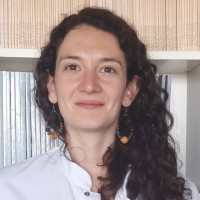
Chloé Angelini (Neurogenetic Reference Center, Medical Genetics Department, Bordeaux University Hospital, Bordeaux, France)
Understanding the fundamentals of Supplemental Security Income (SSI), Social Security Disability Insurance (SSDI), Childhood Disabled Beneficiary Benefits (CDB), Medi-Cal, Medicare, Regional Center, and In Home Supportive Services (IHSS) is the critical first step for the professional to know how to properly plan for persons with disabilities and how to manage their personal and financial care during their lifetimes. This is the foundational program to all other programs. It is a must see for the beginner and an excellent refresher for the experienced professional.
Summary of the scientific session of Friday 12 May
General discussion
11:30am – 12:00am
Understanding the fundamentals of Supplemental Security Income (SSI), Social Security Disability Insurance (SSDI), Childhood Disabled Beneficiary Benefits (CDB), Medi-Cal, Medicare, Regional Center, and In Home Supportive Services (IHSS) is the critical first step for the professional to know how to properly plan for persons with disabilities and how to manage their personal and financial care during their lifetimes. This is the foundational program to all other programs. It is a must see for the beginner and an excellent refresher for the experienced professional.
End of meeting
12:00am
Registration
Registration rate
Registration for this year's symposium costs 45.00€ for the first day, optionnaly 45.00€ for the gala diner (valid only for people registered on the first day) and 12.00€ for the second day (price in euros) for all.
Registration must be done online. Registration until April 30th.
Payments can be made online by card (Mastercard/VISA), PayPal, by bank transfers or cheque after etablishing a purchase order using the registration form that will be below.
Registration for this year's symposium costs 45.00€ for the first day, optionnaly 45.00€ for the gala diner (valid only for people registered on the first day) and 12.00€ for the second day (price in euros) for all.
Registration must be done online. Registration until April 30th.
Payments can be made online by card (Mastercard/VISA), PayPal, by bank transfers or cheque after etablishing a purchase order using the registration form that will be below.
Step One: Verify your identity. To access the registration form, you must enter a valid email. A verification code will be sent to this email.
Step Two: Complete the form below to order.
Step Tree: Choose your payment method.
Direct payment: By paypal or Credit Cards
Place Order: Your can download this purchase order - payment can be made by bank transfer or bank check before April 29th
Generate the purchase Order
Registration from 15 March 2023.
Registration is closed.
Information
Please fill the form below for more informations on the program and registration.
Extended abstract deadline submission April 11th
Extended abstract deadline submission April 11th
Access map
The symposium will take place at the odontology amphitheatre (amphitheatre B called Henri Huguet), on the Site Carreire de l'Universsité de Bordeaux, located 146, rue Léo Saignat 33076 Bordeaux cedex.

FROM BORDEAUX AIRPORT (50 to 60 minutes)
1. At the Airport stop, take the Liane 1 towards Quinconces
2. Get off at the Lycées de Mérignac stop.
3. At the Lycées de Mérignac stop, take Tramway Line A towards La Gardette - Bassens - Carbon-Blanc
4. Get off at Hôpital pellegrin stop. (See the walking route from this stop on the proximity maps below).
1. At the Airport stop, take the Liane 1 towards Quinconces
2. Get off at the Lycées de Mérignac stop.
3. At the Lycées de Mérignac stop, take Tramway Line A towards La Gardette - Bassens - Carbon-Blanc
4. Get off at Hôpital pellegrin stop. (See the walking route from this stop on the proximity maps below).

FROM THE TRAIN STATION (GARE SAINT JEAN) (15 TO 20 MINUTES)
Take Tramway Line C direction Les Aubiers to the Porte de Bourgogne stop; Take Tramway Line A direction Mérignac Centre,
Get off at the Hôpital pellegrin stop. (See the walking route from this stop on the proximity maps below)
Take Tramway Line C direction Les Aubiers to the Porte de Bourgogne stop; Take Tramway Line A direction Mérignac Centre,
Get off at the Hôpital pellegrin stop. (See the walking route from this stop on the proximity maps below)

BY CAR, FROM PARIS:
1. Follow the direction: BORDEAUX-CENTRE / GARE SAINT-JEAN, then BOULEVARDS,
2. Pass the barriers of Bègles, Toulouse, St Genès and Pessac,
3. Then follow signs for Université Bordeaux 2 (on the left).
BY CAR, FROM TOULOUSE:
1. Follow the direction: BASSIN D'ARCACHON / MÉRIGNAC / PESSAC / VILLENAVE-D'ORNON,
2. Exit at exit n°16, then follow the direction TALENCE-CENTRE / DOMAINE UNIVERSITAIRE,
3. Arrived on the Boulevards follow (left) CHU Pellegrin and pass the barriers of St Genès, then Pessac, then follow University Bordeaux 2 (on the left).
1. Follow the direction: BORDEAUX-CENTRE / GARE SAINT-JEAN, then BOULEVARDS,
2. Pass the barriers of Bègles, Toulouse, St Genès and Pessac,
3. Then follow signs for Université Bordeaux 2 (on the left).
BY CAR, FROM TOULOUSE:
1. Follow the direction: BASSIN D'ARCACHON / MÉRIGNAC / PESSAC / VILLENAVE-D'ORNON,
2. Exit at exit n°16, then follow the direction TALENCE-CENTRE / DOMAINE UNIVERSITAIRE,
3. Arrived on the Boulevards follow (left) CHU Pellegrin and pass the barriers of St Genès, then Pessac, then follow University Bordeaux 2 (on the left).

















